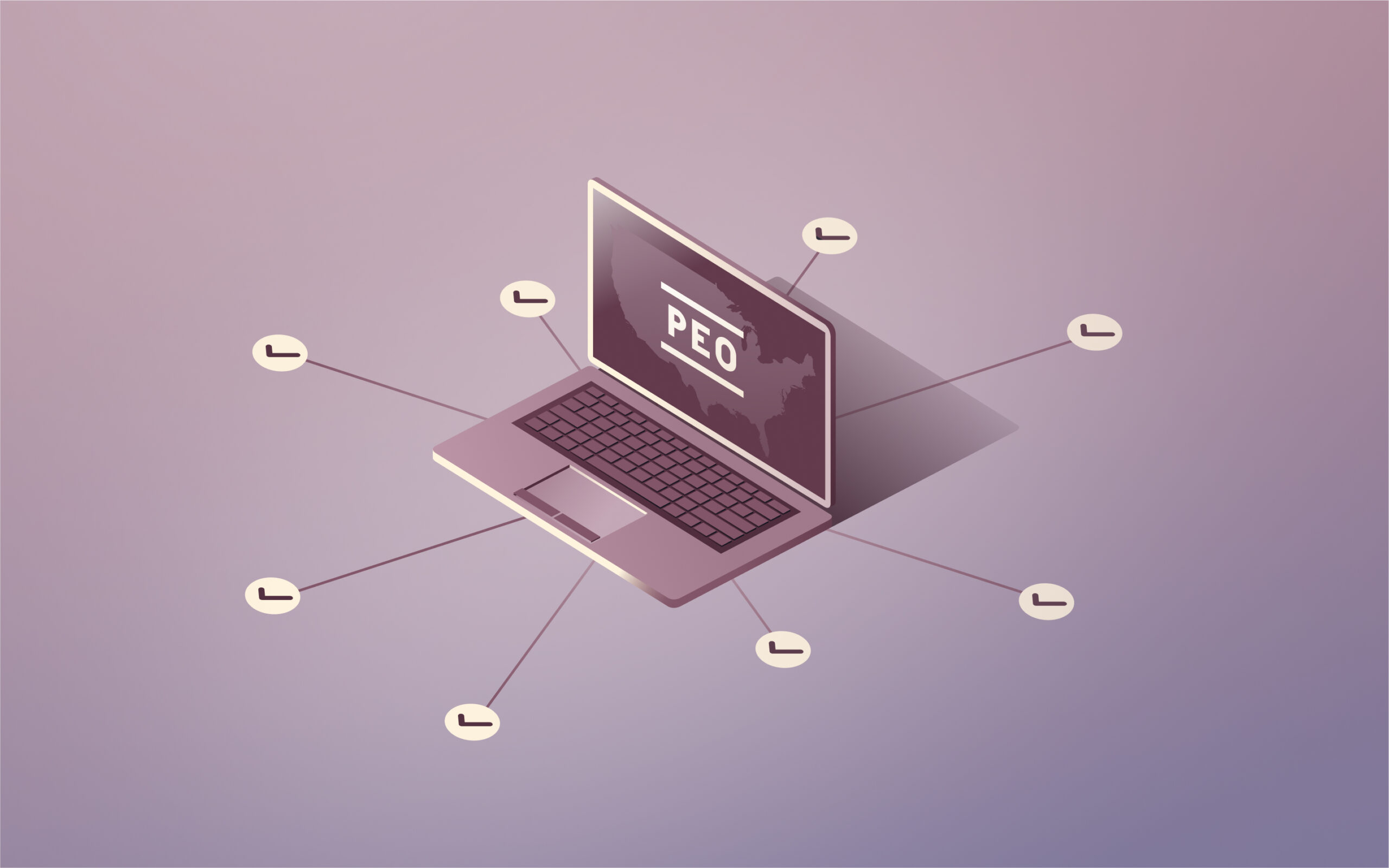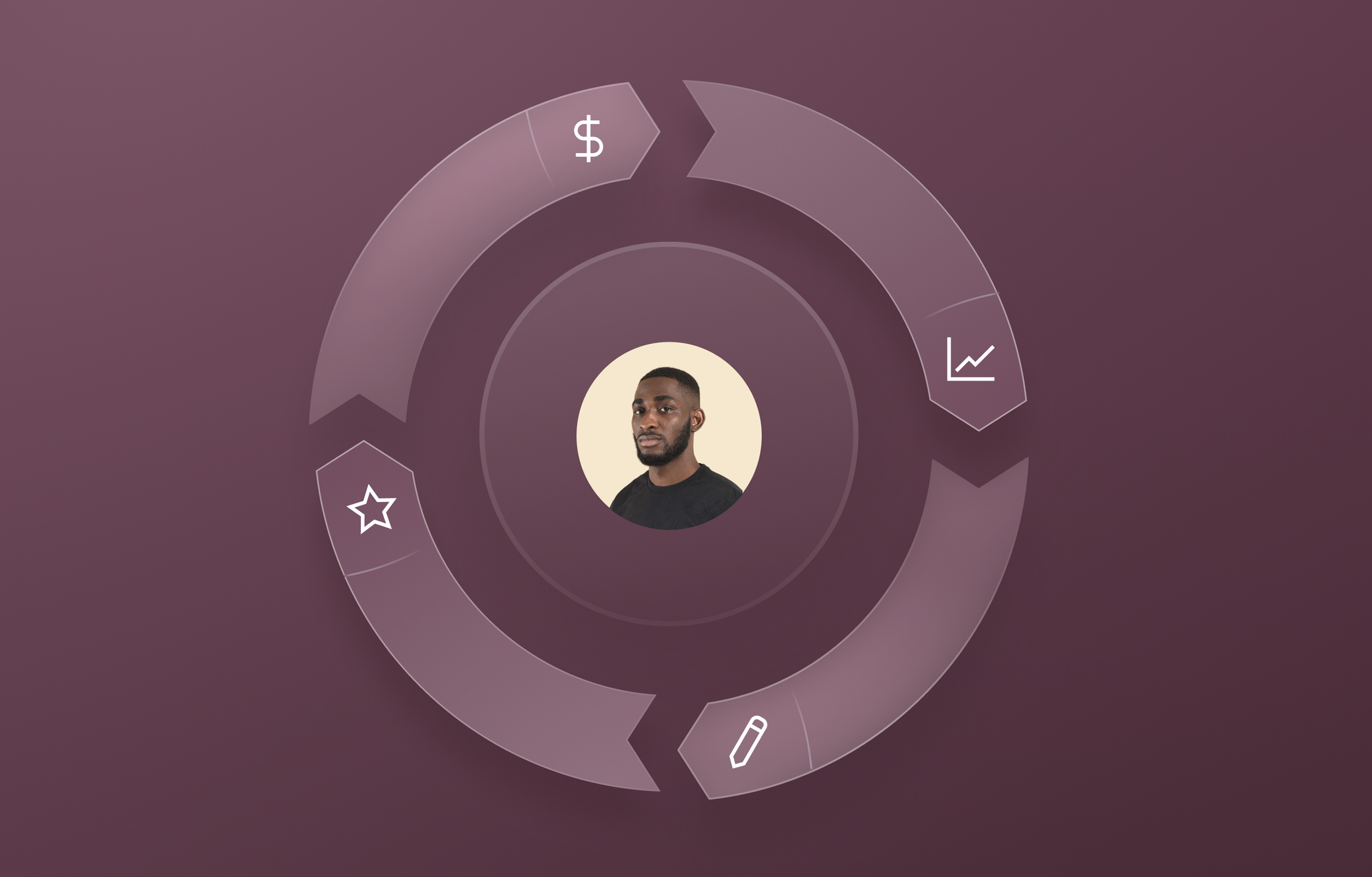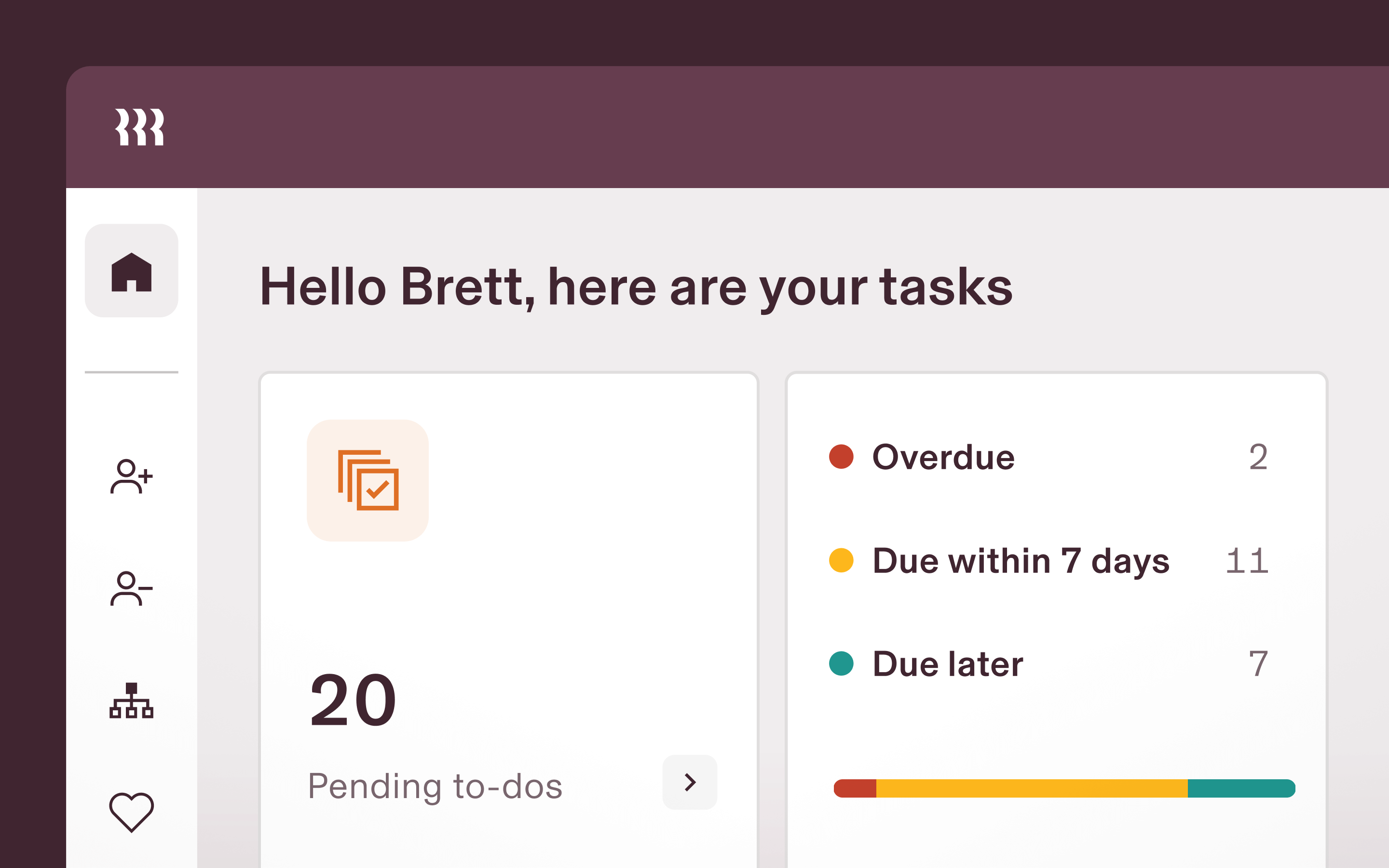PEO in New York [2025]

A professional employer organization (PEO) is instrumental in easing the administrative HR burden for small to mid-sized businesses. It streamlines and automates various HR functions such as payroll services, benefits administration, compliance management, and workers' compensation insurance.
PEOs have a lot to offer businesses in New York state when it comes to minimum wage alone. Minimum wage regulations already vary across the fourth most populated US state. And a new wage legislation proposal may impact nearly three million people in the coming years. That’s a lot of payroll updates and taxation changes to keep up with.
But that doesn’t mean a company in New York or elsewhere should rush the decision of which PEO to partner with. This article can guide you through the decision-making process, highlighting features like automatic, location-based minimum wage compliance that modern solutions like Rippling PEO can offer busy HR professionals.
Let’s dive in.
Benefits of using a PEO in New York
Learn how engaging a PEO service provider can minimize administrative HR responsibilities, provide access to cost-effective benefits, and more.
Offload administrative HR work
Upon joining a PEO, you enter into a co-employment arrangement.
With this model, your business remains the worksite employer, meaning you retain control over hiring, compensation, and overall business strategy and execution.
At the same time, the PEO becomes the administrative employer. Accordingly, it employs your workers under its employer identification number (EIN) to legally take on HR-related tasks like payroll, benefits package administration, and HR compliance.
By applying their expertise and automated systems to take over many of the repetitive and manual HR tasks, PEOs give your company’s internal HR team more time to work on strategic, impactful projects.
Better employee benefits, at a lower price
In 2022, PEOs employed a massive 4.5 million worksite employees. In other words, they’re big businesses with a lot of bargaining power to negotiate lower insurance costs with major benefits providers.
PEOs don’t directly sell these affordable benefits; instead, they harness their scale to procure them from third-party providers. Through a PEO, a business can access everything from health insurance plans to long-term disability and life insurance, workplace benefits, mental health support, retirement plans, and more. And they can get them at rates smaller businesses probably wouldn’t be able to negotiate on their own.
In a state the size of New York—where new competition hits the market every day, and workers are spoiled for choice—a PEO can give your company the power to access and offer robust benefits that attract talented team members.
Worry-free compliance with New York laws
A PEO not only assists in adhering to federal regulations but also plays a crucial role in navigating the intricate (and often changing) employment and labor laws in New York.
Varied minimum wage requirements across the state ($16.50 per hour in New York City, Long Island, and Westchester County; $15.50 per hour in the rest of the state) are just the beginning. For example, all employees in the state must be covered by workers' compensation insurance.
Managing diverse minimum wages in and out of the state, especially if you employ remote workers, is challenging for strapped human resources teams, not to mention complying with workers’ compensation requirements and tax laws.
A PEO like Rippling ensures compliance across a broad spectrum of state and local employment laws. For instance, Rippling automatically detects minimum wage violations based on employees’ locations. It also offers convenient, pay-as-you-go workers’ comp plans that satisfy local requirements, so you know you’re always in compliance with regulations.
A PEO can also aid businesses in complying with:
- Payroll regulations, which involve accurate classification of employees vs. contractors; the issuance and filing of tax forms; timely reporting, collection, and depositing of payroll taxes; and adherence to wage laws such as overtime rules set by federal and state governments
- Benefits laws, encompassing compliance with New York Paid Family Leave and Paid Sick Leave legislation, as well as federal regulations like the Affordable Care Act (ACA), COBRA, FSA, HSA, and other statutes
- Labor laws, including the provision of workers' compensation insurance (mandatory for all New York businesses), assistance in complying with Equal Employment Opportunity (EEO) laws, displaying labor posters as required by the state, and ensuring alignment with federal OSHA and New York Division of Safety and Health regulations for worker welfare
Failure to adhere to NY’s laws can lead to significant penalties. For instance, non-compliance with New York’s workers' compensation requirements incurs heavy financial consequences. Businesses with five or fewer employees may face fines ranging from $1,000 to $5,000 when caught without coverage. Companies employing more than five workers could be charged with a Class E felony for the same mistake—and fines ranging from $5,000 to $50,000.
In that way, compliance support from your PEO of choice isn’t just about staying legal and in good standing; it can also help smaller businesses stay solvent.
Dedicated support team
As you’ve probably come to understand by now, PEOs possess expertise in all things HR. By partnering with one, you can tap into that knowledge and experience.
This is particularly advantageous for small businesses and startups that don’t have the hiring power to build massive internal HR departments. Through a PEO, you get access to a dedicated team that can support your business with many HR needs.
What to consider when evaluating a PEO service in New York
With all the New York PEO services available, how can you be sure you’re choosing the right PEO? From NYC to New York’s many cities upstate and beyond, here’s our guide to figuring out whether a solution is a good fit for your team:
- Business needs: Identify your specific requirements from a PEO. With New York’s stiff workers’ comp requirements—and fines—as well as minimum wage variations, be on the lookout for smart compliance automations. That said, here are the most common PEO features:
- Payroll processing
- Tax filing and compliance
- Benefits administration
- Recruiting and onboarding
- Safety compliance
- Risk management
- Time and attendance tracking
- Regulatory compliance
- HR outsourcing
- Budget: Different PEOs utilize varying pricing structures, but they usually charge per employee per month or a percentage of each payroll run. Whatever the plan, ensure that the chosen PEO remains affordable as your business expands.
- Experience and reputation: Assess whether the PEO has prior experience working with New York businesses and has a good reputation. Utilize software review platforms (G2, Capterra, etc.) to gauge feedback from past and current users.
- Benefits: Explore the quality, variety, and, of course, cost of benefits plans you can access through the PEO—and ensure they align with your employees' benefits needs.
- Benefits renewal rates: Look for transparency regarding how the PEO’s benefits renewal rates increase in cost after the first year. Avoid unexpected costs or the hassle of switching to a new PEO by selecting one that discloses its charges.
- Integrations: Evaluate how the PEO can integrate with your existing systems and tools.
- Industry specialization: If you operate in financial services, healthcare, or any of the other large industries in New York, you may want to seek out a PEO that specializes in your sector.
- Legal and compliance specialties: If your business requires adherence to specific federal or state regulations, consider a PEO with specialized experience to keep you legal and compliant in these areas.
- Exit ease: Plan for the eventual possibility of leaving the PEO. Some PEOs make the exit process challenging, so understanding this beforehand is advisable.
Why Rippling PEO is the right choice for your New York business
Rippling PEO stands out as the best PEO for your New York business due to its unique features and modern approach. In contrast to most PEOs running on software from the 1980s (really), Rippling operates on contemporary, user-friendly software.
Rippling was the first to seamlessly synchronize HR, IT, and Finance within a unified platform, streamlining tasks like rapid 90-second onboarding and efficient remote IT management.
We take care of your crucial compliance tasks while providing your team with access to big-company benefits at reasonable rates. Key benefits of Rippling PEO include:
- HR, IT, and Finance functionalities under one roof to simplify complex flows
- Access to high-power, customizable analytics for understanding employee data
- Effortless management of remote teams with state and local tax registration, paperless onboarding, and app and device administration
- Access to high-quality benefits plans with below-average and predictable PEO renewal rates
- Automation for critical compliance processes, such as setting up state and local tax accounts, flagging minimum wage and overtime violations, and providing recommended plans for compliance infractions
- Automated risk management processes covering ACA and COBRA administration, anti-harassment training, and digital distribution of labor law posters to employees
- Hundreds of HR resources, guides, and templates to support your HR functions
If you decide to bring HR in-house, Rippling offers an easy transition away from its PEO service. Unlike other PEOs with cumbersome exit processes, Rippling allows a simple shift to its all-in-one workforce management platform. Your HR, payroll, and employee data remains stored in your account, integrations with other systems stay intact, and employees can continue using Rippling the same as before.
FAQs about PEOs in New York
What is a PEO, and how does it work?
A professional employer organization (PEO) is an entity companies can partner with to automate HR solutions like payroll, benefits administration, HR management, and compliance. Under a co-employment model, the PEO assumes the legal role of the employer for the company's workforce.
How does a PEO arrangement affect control over my employees?
Business owners retain authority over their daily operations and employee management, while the PEO takes charge of HR functions and employment-related tasks.
What is a Certified PEO?
A Certified PEO (CPEO) is a PEO that has met specific IRS criteria concerning its background, expertise, finances, and reporting. This certification is optional and doesn’t imply an endorsement by the IRS. While CPEO status previously offered tax benefits to businesses, today, the advantages of PEO certification are obsolete.
What size company can benefit from a PEO?
Although PEO companies can cater to businesses of various sizes, small to medium-sized businesses usually derive the greatest advantages.
PEOs assist in reducing administrative costs by outsourcing labor-intensive HR services. They also enable access to premium benefits plans that might be challenging for smaller businesses to secure independently.
How does a PEO charge for its services?
Expenses vary depending on the range of services a PEO offers and your employee count. PEOs usually implement a flat fee per employee or charge a percentage based on the total payroll.
What is the implementation process, and how long does it take to go live?
To begin, the PEO will usually first gather essential details about your employees, including payroll data, employment records, and benefits information. They will then establish their systems to manage your HR, payroll, and benefits administration, including integrating their technology with yours as needed. Finally, they may conduct onboarding sessions for your employees, explaining new benefits and delivering training on the new business solutions they’ve installed.
The duration of this entire process can vary, ranging from a few weeks to a couple of months, depending on your business size and the intricacy of the PEO services.
Are PEOs regulated?
PEOs are bound by regulations at both the federal and state levels. A considerable number opt to obtain accreditation from industry organizations to enhance their credibility.
Are PEOs in New York required to have special certifications or licenses?
Per the New York Professional Employer Act, PEOs in New York must either register or obtain an exemption yearly. Learn more about NY PEO regulations here and the Professional Employer Organization Request for Registration here.
What happens if I want to terminate my relationship with a PEO?
Terminating your partnership with the majority of PEOs can involve a cumbersome and disruptive process of disentanglement.
In contrast, transitioning away from Rippling PEO is straightforward. Simply turn it off to migrate seamlessly to our comprehensive workforce management platform. This ensures that all your systems, data, and integrations remain intact.
In what states is Rippling PEO available?
Rippling PEO is accessible across the USA.
This blog is based on information available to Rippling as of May 19, 2025.
Disclaimer: Rippling and its affiliates do not provide tax, accounting, or legal advice. This material has been prepared for informational purposes only, and is not intended to provide or be relied on for tax, accounting, or legal advice. You should consult your own tax, accounting, and legal advisors before engaging in any related activities or transactions.






